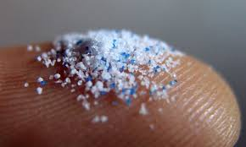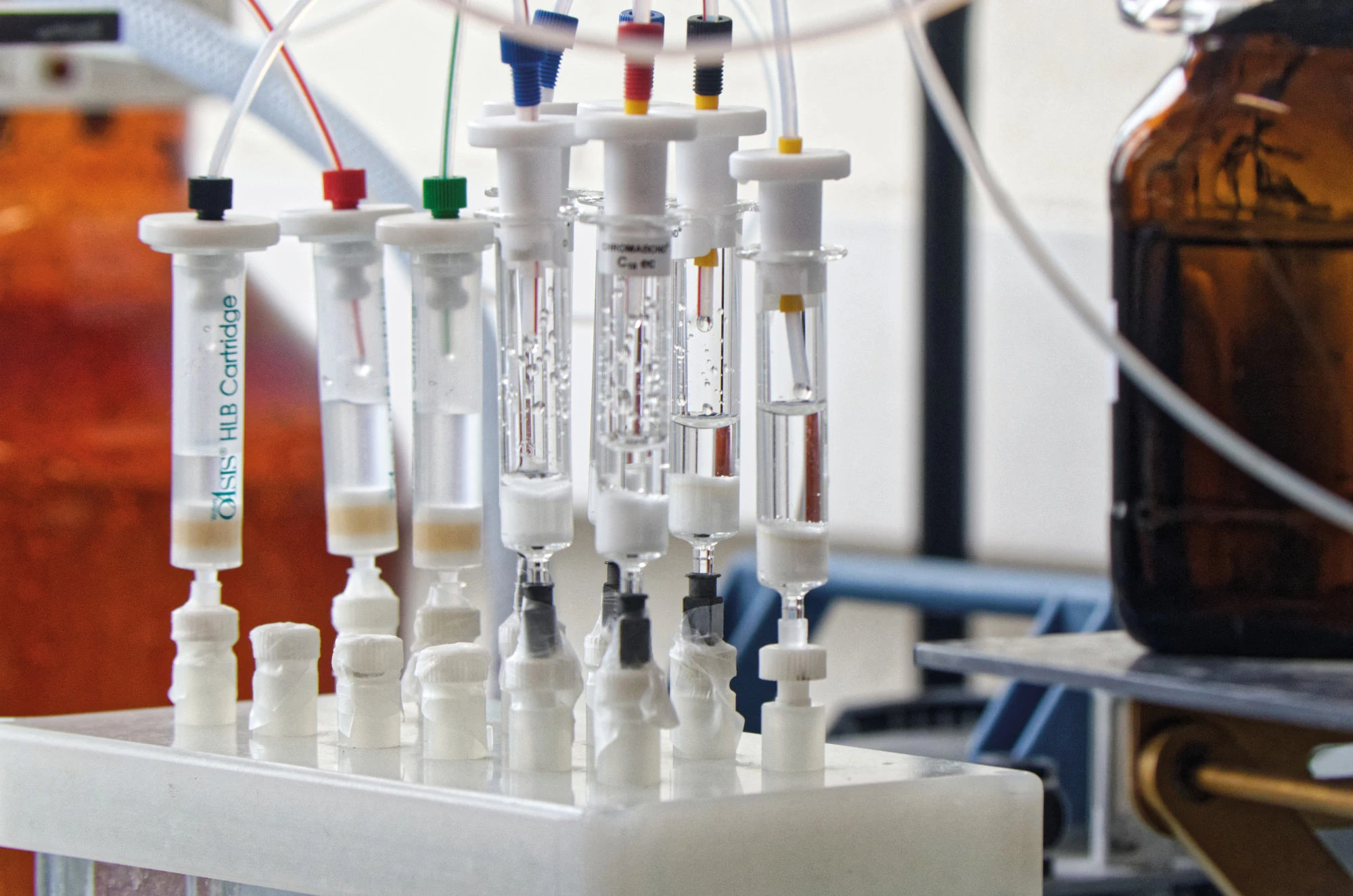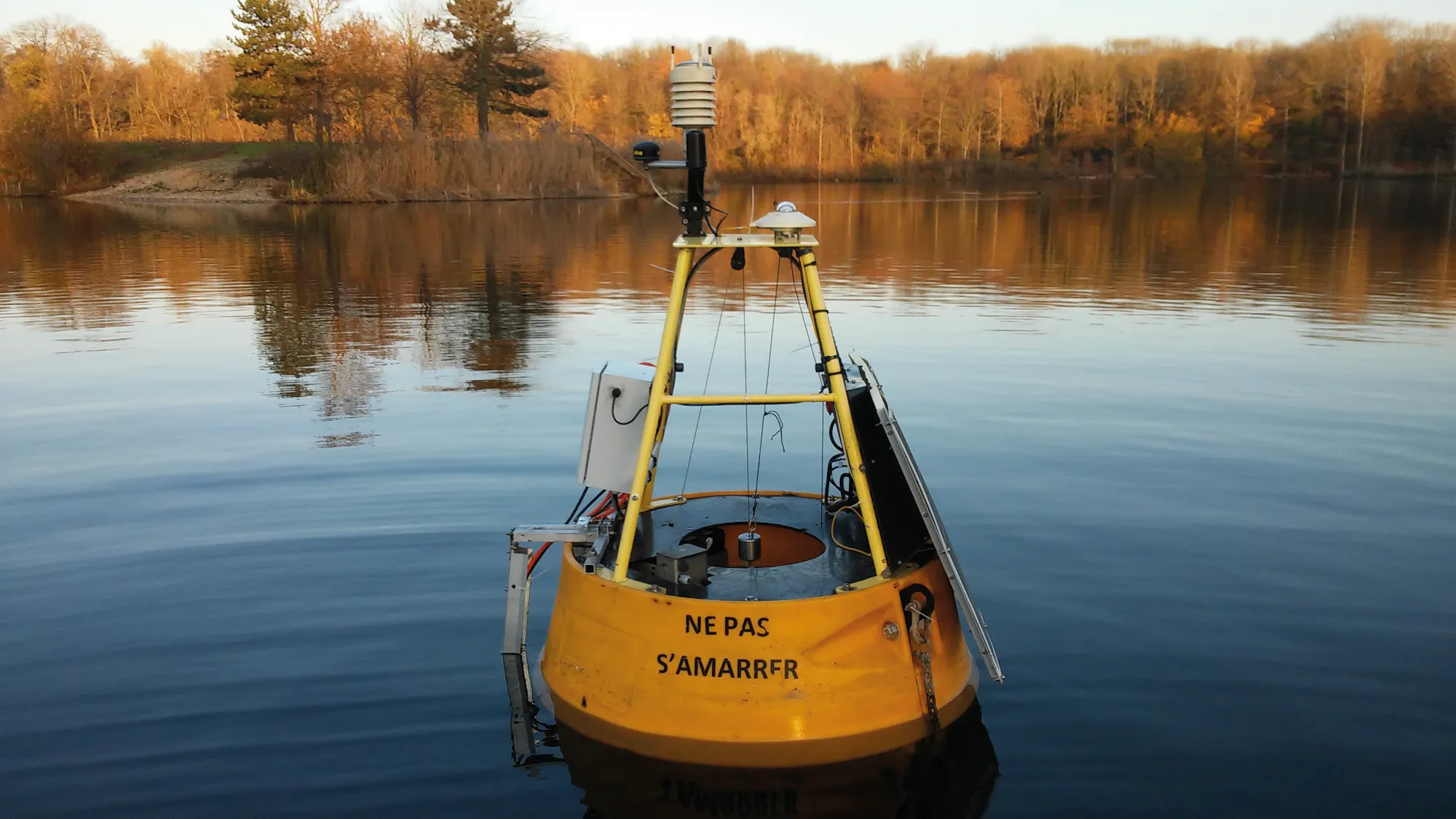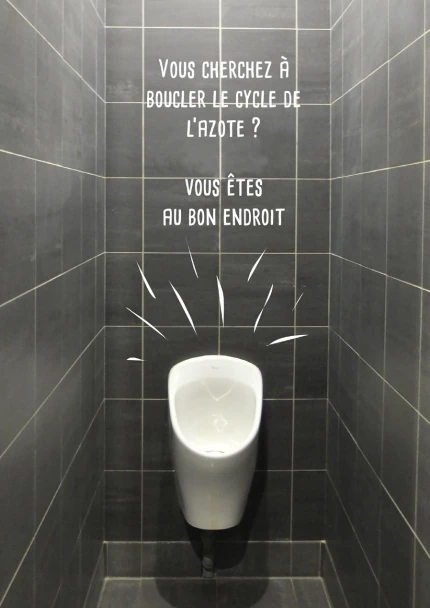- Recrutements
- Contacts
- Annuaires
- Choix du langage :
Dernières publications
935.
- titre
- Assessing water quality restoration measures in Lake Pampulha (Brazil) through remote sensing imagery
- auteur
- Alexandre Assunção, Talita Silva, Lino de Carvalho, Brigitte Vinçon-Leite
- article
- Environmental Science and Pollution Research, 2025, ⟨10.1007/s11356-025-35914-6⟩
- titre
- Do suspended particles matter for wastewater-based epidemiology?
- auteur
- Gauthier Bernier-Turpin, Régis Moilleron, Chloé Cenik, Fabrice Alliot, Sabrina Guérin-Rechdaoui, Thomas Thiebault
- article
- Water Research, In press, 280, pp.123543. ⟨10.1016/j.watres.2025.123543⟩
- titre
- Plastic debris dataset on the Seine riverbanks: up to 38 000 pre-production plastic pellets reported per square meter
- auteur
- Romain Tramoy, Laurent Colasse, Johnny Gasperi, Bruno Tassin
- article
- Data in Brief, 2025, pp.111735. ⟨10.1016/j.dib.2025.111735⟩
- titre
- La persistance des champs d’épandage d’eaux usées de l’agglomération parisienne au cours du second XXe siècle
- auteur
- Etienne Dufour
- article
- Métropolitiques, 2025, ⟨10.56698/metropolitiques.2174⟩
- titre
- Stock and vertical distribution of microplastics and tire and road wear particles into the soils of a high-traffic roadside biofiltration swale
- auteur
- Max Beaurepaire, Tiago de Oliveira, Johnny Gasperi, Romain Tramoy, Mohamed Saad, Bruno Tassin, Rachid Dris
- article
- Environmental Pollution, 2025, 373, pp.126092. ⟨10.1016/j.envpol.2025.126092⟩
Internship offer for summer 2020 (master’s degree) : Measurement of nutrient fluxes at the water-sediment interface of an urban lake employing different techniques => STAGE POURVU / INTERNSHIP OFFER PROVIDED
publié le
Internship offer for Master’s student (1st year) in 2020 at Leesu : Measurement of nutrient fluxes at the water-sediment interface of an urban lake employing different techniques
Scientific background
Climate change increases the risks of eutrophication and pollution of resources. Higher temperatures promote both algae growth and oxygen depletion in shallow water bodies such as lakes and rivers. These factors are constantly affecting the use of water and the ecosystem health in many ways : interruption of drinking water production, health risks related to agricultural and livestock production, prohibition of fishing and recreational activities. In addition, the waterbody anoxia can result in the release of pollutants, such as carbon, ethane and nitrous oxide from the sediment.
The main physical, biological and chemical mechanisms related to nutrient and micropollutants cycles in aquatic ecosystems are known, but their empirical quantification in an ecosystem remains unclear or insufficient. As a result, the trigger and the drivers of rapid processes, such as algae bloom, cannot be predicted or quantified.
The dynamics at the water-sediment interface is governed by a wide range of processes, including the turbulent transport. The contribution of turbulence to benthic fluxes is poorly understood, due to a lack of instruments that would combine the following criteria : being non-invasive, presenting high temporal resolution and encompassing a wide range of possible substances for analysis.
Internship objective
Within the AquaREA project, a partnership between École des Ponts ParisTech (France), AgroParisTech (France) and the University of Landau (Germany), we are developing a sampling system for turbulent benthic fluxes based on the micrometeorological technique known as Relaxed Eddy Accumulation.
The objective of the internship is to compare different techniques for benthic flux estimation simultaneously with the developed technique. This approach will provide an empirical estimation of the effect of turbulence on the measured fluxes. The intern will employ two techniques, the benthic chamber and the diffusive equilibration in thin films, both well established. The measurements will take place at Lake Champs-sur-Marne (Marne-la-Vallée), close to Ecole des Ponts ParisTech premises, under the supervision of a PhD student.
Student profile required
- M1 or summer internship
- Scientific and mathematical background, statistics and basic programming and coding for data analysis
- A particular enthusiasm for field and experimental work
- Driver’s license valid in France
Practical information
The expected duration of the internship is of three months.
The location of the internship is at the research group Water, Environment and Urban Systems (LEESU in French) at Ecole des Ponts ParisTech, 6-8 avenue Blaise Pascal, F-77420 Champs-sur-Marne, France.
The intern will be granted 554.40 € a month (the computation is based on the exact number of working days). Half the monthly travel ticket of the regional public transport network will be refunded upon request. The intern will be admitted to the cafeteria for meals and will benefit from the Ecole des Ponts ParisTech electronic resources, including the digital library.
Supervisors
The internship will be supervised by Bruno Lemaire, lecturer in hydrology at AgroParisTech, and Guilherme Calabro, PhD student at Ecole des Ponts ParisTech.
Contact
If you are interested, please send your CV and application letter before the February 20th to : Bruno Lemaire (bruno.lemaire[at]enpc.fr) and Guilherme Calabro (guilherme.calabro-souza[at]enpc.fr)









 Productions scientifiques
Productions scientifiques Moyens techniques et équipements
Moyens techniques et équipements Expertise et disciplines
Expertise et disciplines


